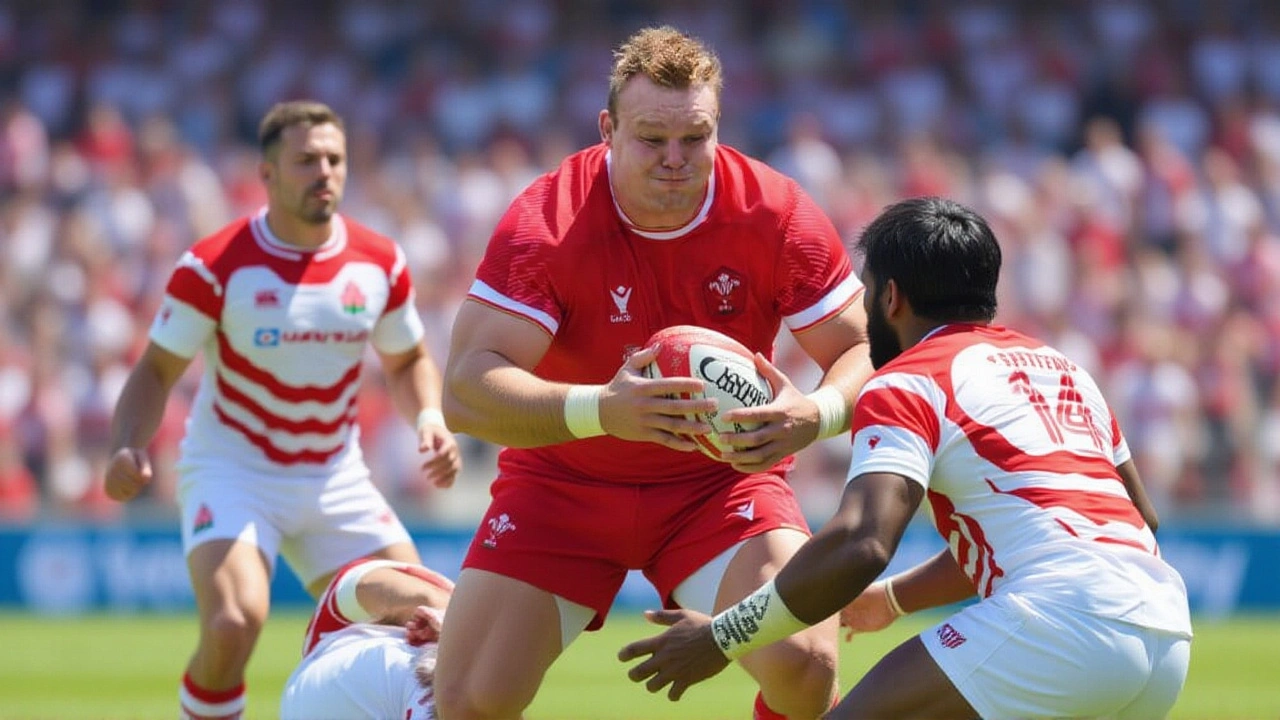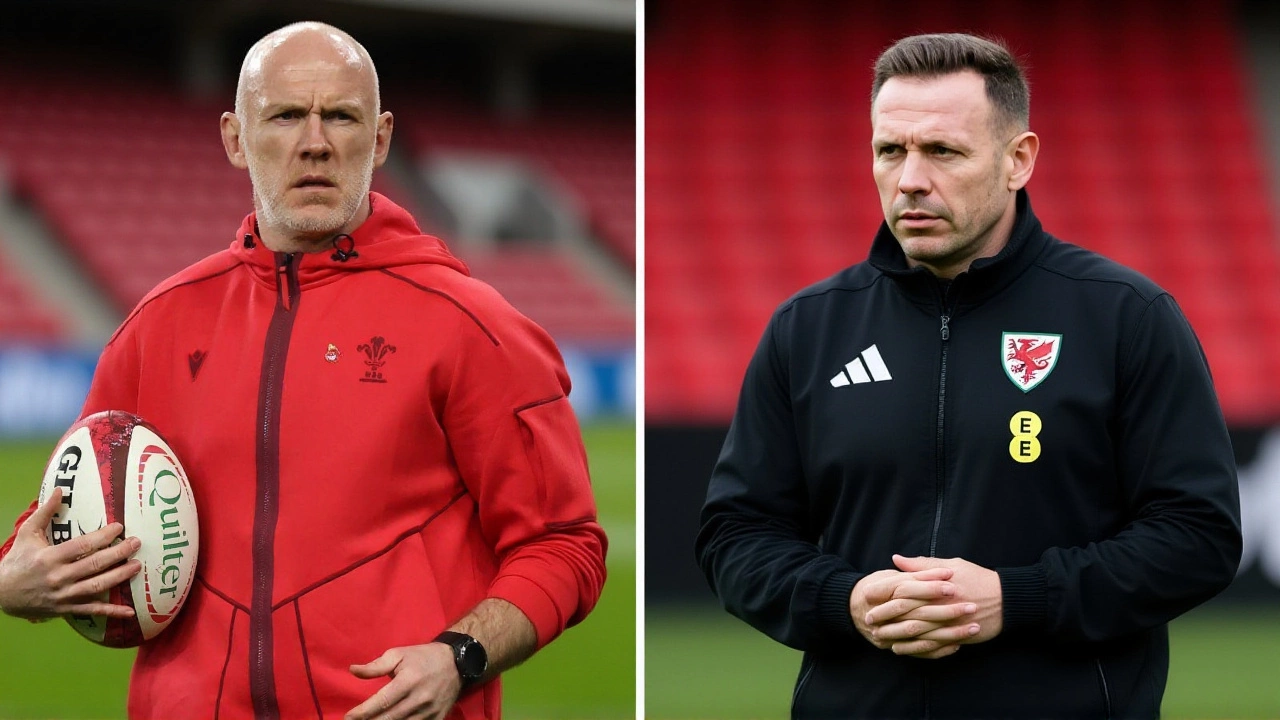Joe Morrell’s dream of playing in a World Cup died on a cold October afternoon at Fratton Park. The 28-year-old Welsh midfielder, once poised to represent his country on football’s biggest stage, never got to step onto the pitch in Qatar — not because he wasn’t good enough, but because his body gave out. A brutal tackle during Portsmouth’s Championship match against Derby County on October 23, 2021, Fratton Park shattered more than just his knee. It shattered his playing future. Two years of grueling rehab, seven MRIs, and countless physio sessions ended not with a comeback, but with a quiet retirement announcement on August 15, 2023. Now, Morrell is trading his cleats for a clipboard — and the Football Association of Wales is footing the bill.
The Injury That Changed Everything
It started as a routine challenge. October 23, 2021. 3:00 p.m. BST. Fratton Park. Morrell, then in his first season at Portsmouth after a decade in the lower leagues, went in for a tackle. He didn’t hear the pop — but he felt it. A sharp, searing pain that didn’t fade. He walked off the pitch, limping, hoping for a few weeks off. Instead, scans at University Hospital Southampton revealed a complete ACL tear and meniscus damage. Surgery followed on November 1, 2021. Six months of rehab. Then, on May 18, 2022, during a light jog at Portsmouth’s Hilsea training ground, the pain returned — worse than before. Another MRI at Circle Reading Hospital showed something worse: irreversible cartilage erosion. No repair. No recovery. Just silence."It wasn’t just the pain," Morrell later told a close friend. "It was the knowing. The moment you realize you’ll never feel that rush again — that 90 minutes where everything else disappears. That’s the part they don’t tell you about."
A Nation’s Quiet Support
While Morrell’s club, Portsmouth Football Club, handled the medical logistics and activated its £1.2 million disability insurance policy through Lloyd’s of London, the Football Association of Wales stepped in with something more personal. From November 2021 through August 2023, FAW Medical Director Mark Gillett conducted monthly check-ins. Team manager Rob Page called him after every Wales match. Noel Mooney, the FAW’s CEO, personally visited him at his home in Cowbridge. And when the final medical clearance came from consultant Dr. Simon Moyes at The Wellington Hospital on August 12, 2023, it wasn’t just a letter — it was a lifeline.The FAW didn’t just say goodbye. They said: "What’s next?"
From the Pitch to the Bench
On September 1, 2023, Morrell walked into the Dragon Park National Coaching Academy in Newport, Wales. The £9,850 tuition for the UEFA Pro Licence program? Paid by the FAW’s Career Transition Partnership — funded by the Premier League’s £100 million solidarity fund. He wasn’t just enrolling in a course. He was stepping into a new identity.He’s shadowing Rob Page, watching how the Wales manager reads the game, manages pressure, and speaks to players. He sat in the dugout during Wales’ Nations League matches against Belgium in Cardiff and the Netherlands in Amsterdam in June 2023. He’s now part of the FAW’s Elite Coach Mentoring Programme — an accelerated path designed for former internationals who’ve lost their playing careers too soon.
"He’s got the mindset," says Geraint Williams, FAW’s Head of Coach Education. "Not the ego of a player, but the humility of someone who’s been broken and rebuilt. That’s coaching gold."

The Cost of a Dream
The financial toll was staggering. Morrell’s three-year, £350,000-a-year Portsmouth contract was terminated under clause 14.3 — a standard clause for career-ending injuries. But the human cost? Harder to quantify. The FAW spent £7,200 on psychological support through the Sporting Chance Clinic in London. His father, Paul Morrell, a former semi-pro in Barry Town, was his constant anchor — driving him to appointments, cooking meals, sitting silently beside him during the worst nights.And then there’s the World Cup. Wales’ run in Qatar — their second ever — was historic. They beat the USA, drew with Iran, and nearly made it out of the group. Morrell watched every match from his living room. He didn’t cry. He just stared. "I didn’t deserve to be there," he told a reporter last month. "But I still felt like I was part of it."
What’s Next for Morrell?
By December 15, 2023, he’ll earn his UEFA B Licence. Then, in October 2023, he’ll step onto the touchline as an assistant coach for Wales’ Under-19s during their European Championship qualifiers at Dragon Park. He’ll be the guy handing out water bottles, jotting down notes, and whispering tactical tweaks. He won’t be the star. But he’ll be needed."I’m not trying to replace my playing career," Morrell says. "I’m trying to build something new — something that lasts longer than a 90-minute match."

Why This Matters
Morrell’s story isn’t unique. In England alone, over 200 professional footballers suffer career-ending injuries each year. Few get the kind of structured support he received. The FAW’s model — combining financial aid, mental health resources, and immediate coaching pathways — is becoming a blueprint. Other associations are watching. So are players.For every high-profile star who retires with a mansion and a TV contract, there are dozens like Morrell — talented, hardworking, and suddenly without a future. He didn’t win trophies. He didn’t score in the World Cup. But he gave everything. And now, the game is giving back.
Frequently Asked Questions
How did Joe Morrell’s injury prevent him from playing in the 2022 World Cup?
Morrell suffered a severe knee injury on October 23, 2021, during a club match for Portsmouth. Despite months of rehab, recurring cartilage damage confirmed in May 2022 made competitive play impossible. The final medical clearance denying his return came on August 12, 2023 — just weeks before Wales departed for Qatar. He was named in preliminary squads but never fit to train with the final 26-man roster.
Why is the Football Association of Wales paying for Morrell’s coaching course?
The FAW’s Career Transition Partnership, funded by a £100 million solidarity payment from the Premier League, supports former internationals who retire prematurely due to injury. With 12 caps and a career spanning 17 years in professional football, Morrell qualifies for full tuition coverage (£9,850) and access to mentorship programs designed to ease the emotional and professional shift from player to coach.
What role will Morrell have with Wales’ Under-19 team?
Morrell will serve as an assistant coach during the 2024 UEFA European Under-19 Championship qualifiers, starting October 8, 2023, at Dragon Park. His duties include tactical analysis, training session design, and player development guidance — particularly in midfield structure and game management — drawing on his own experience as a technically sound, intelligent central midfielder.
How common are career-ending injuries in professional football?
Approximately 200 professional footballers in England and Wales suffer career-ending injuries annually, according to the Professional Footballers’ Association. ACL tears, spinal injuries, and chronic cartilage damage account for over 60% of these cases. Only about 30% of those affected receive structured transition support, making Morrell’s case unusually well-resourced — and a model others are now studying.
What happened to Morrell’s contract with Portsmouth?
Morrell’s three-year contract, signed on July 1, 2021, included clause 14.3 allowing termination if a player sustains a permanent, career-ending injury. Portsmouth activated this clause on August 10, 2023, following final medical confirmation. The club received £1.2 million from Lloyd’s of London under its permanent disability insurance policy, which covered his remaining salary and medical costs.
Is Morrell the first Welsh player to transition from injury retirement to coaching through the FAW?
No — but he’s among the first to enter the accelerated UEFA Pro Licence pathway immediately after retirement. Former Wales international Andy King, who retired in 2021 due to injury, began coaching at Leicester City’s academy. Morrell’s case is notable because the FAW initiated his coaching journey within days of his retirement, ensuring continuity and emotional support during a critical window.
